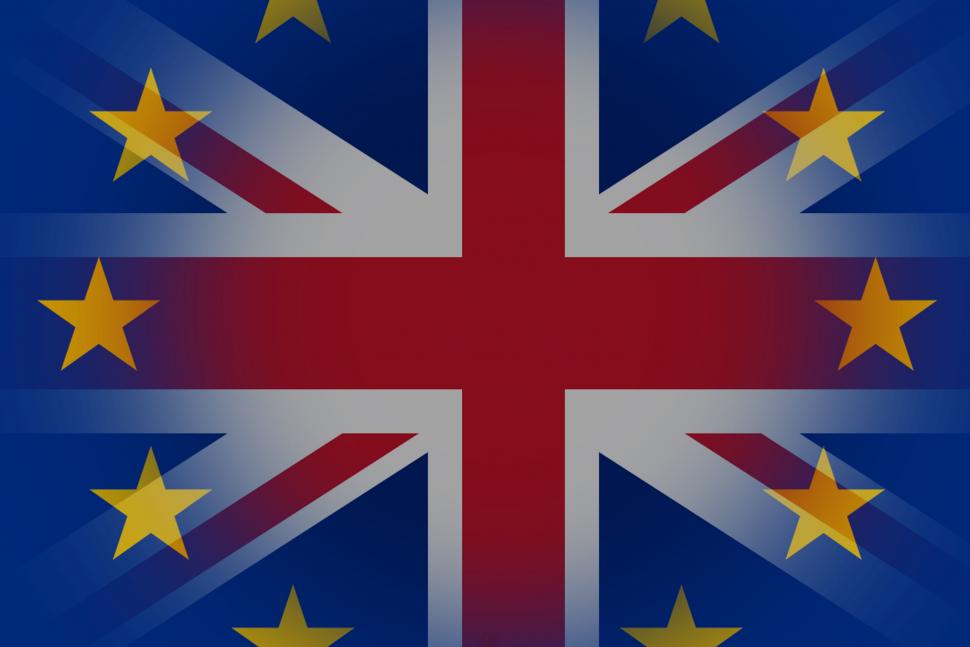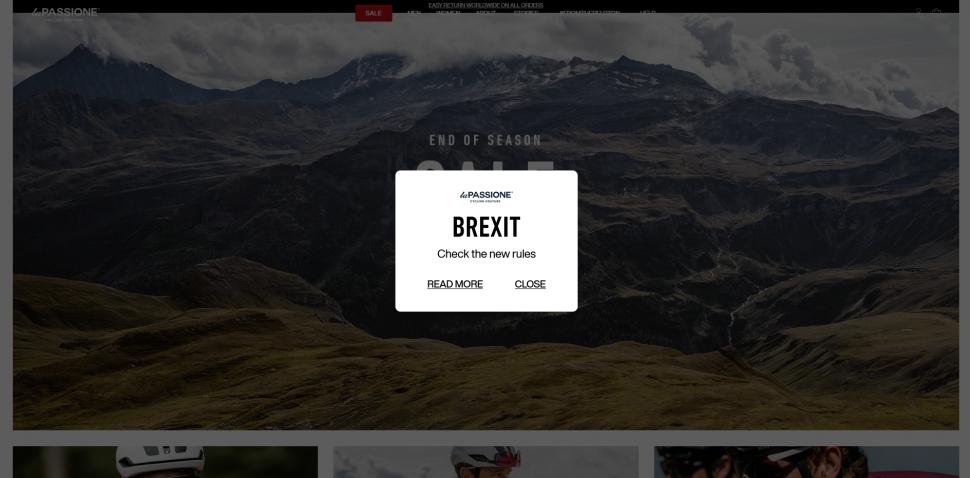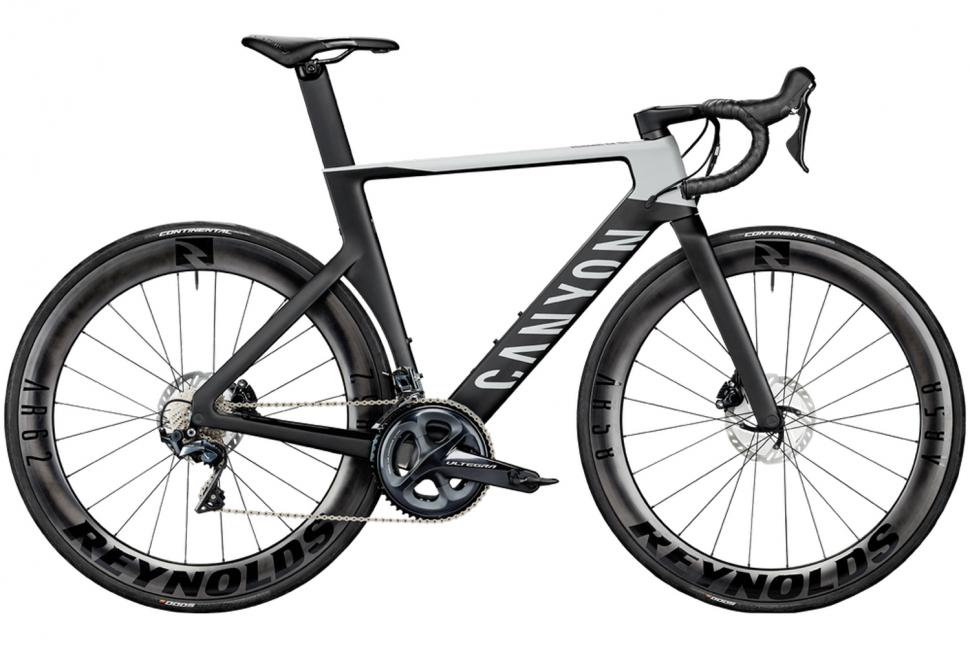- News
- Reviews
- Bikes
- Accessories
- Accessories - misc
- Computer mounts
- Bags
- Bar ends
- Bike bags & cases
- Bottle cages
- Bottles
- Cameras
- Car racks
- Child seats
- Computers
- Glasses
- GPS units
- Helmets
- Lights - front
- Lights - rear
- Lights - sets
- Locks
- Mirrors
- Mudguards
- Racks
- Pumps & CO2 inflators
- Puncture kits
- Reflectives
- Smart watches
- Stands and racks
- Trailers
- Clothing
- Components
- Bar tape & grips
- Bottom brackets
- Brake & gear cables
- Brake & STI levers
- Brake pads & spares
- Brakes
- Cassettes & freewheels
- Chains
- Chainsets & chainrings
- Derailleurs - front
- Derailleurs - rear
- Forks
- Gear levers & shifters
- Groupsets
- Handlebars & extensions
- Headsets
- Hubs
- Inner tubes
- Pedals
- Quick releases & skewers
- Saddles
- Seatposts
- Stems
- Wheels
- Tyres
- Health, fitness and nutrition
- Tools and workshop
- Miscellaneous
- Tubeless valves
- Buyers Guides
- Features
- Forum
- Recommends
- Podcast
TECH NEWS
 Brexit Flickr Creative Commons
Brexit Flickr Creative CommonsBrexit and the bike industry: how the situation is evolving
Since we looked at how the new Brexit rules were affecting UK brands, retailers and distributors two weeks ago, things are continuing to evolve. What does it look like the situation will be, in terms of supply and pricing, over the coming months?
If Britain leaving the EU wasn't enough to contend with, an ongoing shortage of shipping containers in Asia since the start of the COVID-19 pandemic has had a knock-on effect of price increases, making it even harder for brands to absorb the already escalating costs of Brexit with tariff fees and new customs costs.
Stock that brands have built up in anticipation of port delays (because of lengthier customs processing) are dwindling as a result of the continual high demand of bikes—which, on top of shipping container shortages, has meant delays for customers after purchasing.
We previously reported on how the UK’s new rules on VAT are impacting brands and retailers in the EU selling to customers in the UK—with some having suspended sales to consumers temporarily, and others stopping altogether. Pages with Brexit rules and FAQs are popping up on websites as they try to effectively communicate to customers their approach in following the new guidelines.
There has been some confusion regarding who pays what charges — company or customer — and whether those charges are taken at checkout or upon delivery with courier.
> Planet X customers on the continent being asked to pay UK VAT amount as well as EU VAT
We reported yesterday that Ribble admits its information “could have been clearer” around the 14% post-Brexit tariff applied to bikes moving between the UK and EU that fall outside of the new 'sale of origin' rule, and has offered to refund the tariff amount for EU customers who ordered between 1st-17th January.
David Stacey, Ribble's Commercial Director, said: "We’ve removed all UK VAT from the pricing that any European customer will see, so they aren’t paying for that twice. The customer also gets a pop-up message when they’re in our Bike Builder, which is the process every customer has to go through to buy a bike from us.
"That pops up to tell the customer that because of Brexit and the changes, they will be liable for local taxes and they will need to work that out with their local customs office when they receive the bike.”
Italian clothing brand La Passione also states on its website that for orders over £135, UK VAT will need to be paid to the courier upon delivery, and warns that the courier could charge an additional management fee.
Canyon has simply changed its pricing to cover any applicable duties or customs handling fees, so you see the whole amount you will have to pay at checkout: “The benefit is the pricing you see on our website and during checkout is the final pricing, and there are no additional fees once your Canyon order arrives with you,” the German bike manufacturer added.
Prices are rising, but not in a uniform fashion, as brands attempt to absorb some of the additional costs. As we reported, taking the Canyon Aeroad CF SL 8 Disc as an example, the price increase of 9.21% is not as much as the 14% import duty; but still, it's a significant increase for customers.
One EU bike brand, that wishes to remain anonymous, has made road.cc aware that new customs costs are based on the volume of the parcel being shipped rather than weight. Although bike boxes are quite light for their size, calculating the shipping in this way means that considerable fees are being levied. This is a particular issue for lower end bikes, as the increased fees are proportionately greater relative to the cost of the bike compared to higher end models.
Mitigating that 14% import tariff (if a sizeable proportion of a bike's frame and components are made outside of the UK and EU), plus the new customs charges is difficult for many brands to fully cover themselves.
Added to this, freight rates have risen to new highs due to the shortage of shipping containers transporting goods from Asia into Europe. The cost of shipping a 40ft container from Asia to Northern Europe has increased from $2,000 in November to more than $9,000, according to the Financial Times.
The slowdown in global trade and economic shutdown in Europe in the spring of 2020, due to coronavirus lockdowns, meant less containers were shipped back to Asia. Then in the second half of 2020, western demand for Asian-made products soared, and so did freight rates as shippers became desperate for available containers. Port delays are causing a further rise in prices, as freight operators are charging extra to compensate for longer waiting times.
For Ribble’s UK customers, this issue surrounding the shipping container shortage has meant lengthy lead times after purchasing.
David Stacey commented: “These factors are definitely not new, since about October time we’ve been experiencing major delays at ports.
“Not all of that is to do with Brexit, it’s to do with several other factors, mostly COVID and the furloughing of people at ports, and this has created a massive knock-on effect of container shortages and shipping delays, and therefore supply and demand dictates the price rise [with containers]."
This is an issue the brand has been battling for months now, but Brexit complications has exacerbated these inter-weaving problems. Stacey added: “It’s really difficult as a UK manufacturer, because we’re totally reliant on those constituent parts arriving with us. We basically build to order, none of our bikes sit on a shelf in a box. Every single customer who orders a bike from us has it hand-assembled from its constituent parts, and we’re just being crippled really by these delays. It’s been very, very difficult.”
> road.cc Sportive & Endurance Bike of the Year 2020/21
This all coincides with an increase in the numbers of us cycling and buying bikes, as the UK government has supported and encouraged cycling (amongst limited other forms of exercise) to continue through the pandemic, and the related lockdowns.
> 12 ways that lockdown has changed cycling
Ribble’s CEO Andy Smallwood said: “We’re still tracking at a very high level of demand. We forecast on a very regular basis, but it takes time to react to an increase in demand, and that’s compounded by delays as well.
“We are well placed to meet the demand, although there is obviously lead times involved, and that has an impact on what product will be available.
“That’s not just us, that’s the whole bike industry. Lead times are growing and availability is tough.”
> Bike at Bedtime: Drops Le Col Ribble Endurance SL R Disc
Any well-made plans made before the new Brexit rules arrived on 1st January 2021 have only helped to a limited extent.
Smallwood added: “We bolstered stock around multiple Brexit timing points in order to cover us for any delays. But with the bike industry there’s been significant growth, so that’s eaten into any buffer stocks we put in around Brexit. From a stock perspective and delays it wasn’t a case of being unprepared, just a case of other factors outside of that which has impacted us.”
Are the buffer stocks from other brands on the verge of completely running out? Perhaps then, we will see an even bigger hit from customs delays and shipping container shortages, as there’s no back-up stock to hide the damage?
There is also another issue emerging, relating to transporting imports from the EU, that could have implications on the bike industry in the coming months.
Increasing numbers of freight groups are rejecting contracts to move goods from the EU to Britain, according to a recent report by The Guardian. This is explained to be the result of the burdensome new financial guarantees, known as T1s, that apply to goods being exported to the UK. Alongside this, customs declaration and Rex (registered exporter system) documents to certify the origin of the product need to be provided, and cause added complications and paperwork for these freight companies—and these shippers are simply not interested.
We'll be following the developments over the coming weeks and months, and will provide updates when any significant changes happen with the current situation. Are you a bike brand, distributor or customer with a story to tell about Brexit and the bike industry? Get in touch at info [at] road.cc
Anna has been hooked on bikes ever since her youthful beginnings at Hillingdon Cycle Circuit. As an avid road and track racer, she reached the heady heights of a ProCyclingStats profile before leaving for university. Having now completed an MA in Multimedia Journalism, she’s hoping to add some (more successful) results. Although her greatest wish is for the broader acceptance of wearing funky cycling socks over the top of leg warmers.
Latest Comments
- chrisonabike 3 hours 33 min ago
I have a visual memory from childhood of one of this species of bricks popping loose from a bracket on a downhill section and flying away to smash ...
- wtjs 4 hours 22 min ago
There is an increasing 'disconnect' between comments in this topic and reality. Cords are either all cotton or mostly cotton and are going to last...
- ktache 4 hours 53 min ago
There are people out there who will make you the belt out of your old tyre.
- chrisonabike 4 hours 55 min ago
Furry dice and an air freshener for your helmet.
- AidanR 5 hours 7 min ago
Looking at the pictures in the linked article, the bikes aren't actually inconsiderately parked. The only issue is that they're on private property...
- Simon E 5 hours 43 min ago
Ah yes, those are hopefully not the 'master craftsmen' that has constructed a wide range of shoddy Italian cars and motorbikes over the years with...
- Simon E 6 hours 5 min ago
A SuperSix is definitely not an all-rounder....
- chrisonabike 6 hours 57 min ago
Just get them to walk a treadmill - or better, ride exercise bikes to power path lighting.
- AidanR 7 hours 33 min ago
So his advisers were trying to move funds around to cover losses, but in a way that needlessly created additional liabilities? It would have been...





Add new comment
153 comments
It wouldn't be quite such a shit-show if they had told people what to be ready for.
But no-one knew, they couldn't know, because Boris gambled, he pretended it was arm-wrestling, played a brinkmanship game and lost (unsurprisingly). The FT's Peter Foster sheds some light on the process.
For anyone importing and/or exporting food from/to the EU it has become a nightmare. Brexit contingency planning had already diverted resources but it is now costing food and logistics businesses millions and wasting a ridiculous number of goodness knows how many people's working hours; 3 weeks into 2021, my colleagues who deal with it are miles behind with their usual workloads with no let-up in sight. I'm sure it is a very similar scenario in other industries.
Blessed are the cheese-makers
https://www.theguardian.com/politics/2021/jan/23/cheshire-cheesemaker-says-business-left-with-250000-brexit-hole
You're welcome. This is not a joke.
This is not a joke.
Er, what so special about the cheesemakers?.....
Obviously it's not meant to be taken literally; it refers to any manufacturers of dairy products.
If you don't know now, you never will.
But can they get together with pea growers? Cos if you like cheese, and you like peas...
I like em squeezy.....
Two things are sure:
1. More regulation compliance = more waste of resources and time. Items taking up space in bonded warehouses, additional administration time in filling forms and chasing resolution of problems. Double handling of millions of parcels. Think of it as an exercise in digging holes in the road and filling them in again. There is no net benefit but a lot of people are kept busy, resources tied up and the smooth flow of people just trying to use the road is severely disrupted.
2. The cost of things is already going up, availability is going down. British businesses are losing export trade and importing raw materials just got a whole lot more difficult.
Another anecdote to add to the litany of Brexit instigated carnage. Since the New Year the company I work for has lost 2 consignments of dry ice shipped Covid research material due to misunderstanding between courier and UK customs despite all paperwork being correct. They just got held up for too long before being cleared and arrived in an unusable state. Each time, not only is the sample lost, but 3 days of lab time and at least a 2 week delay to the planned research which puts us behind schedule. Total cost to the business runs into the £10s of thousands. Is this a widescale problem in the Biotech industry? I don't know but if it becomes an ongoing problem then we will have no choice but to move a significant amount of research work to European based labs.
Brexit, the new scapegoat for all ills. Britain such a hateful, depressing nation post-Brexit that 4.2 million Europeans have applied to remain.
It's as if retailers never took any opportunity they could to raise prices in Britain before. We've been paying over the odds for goods for as long as I can remember; "rip-off Britain" existed long before Brexit you know....
Hate crimes soared 41% after Brexit vote. But don't stop believing that it was all motivated by peace, love and tolerance if that's your agenda.
I think Britain certainly had, and has, many problems that are unrelated to our membership, or otherwise, of the EU. But why anyone would feel that we should compound those problems by leaving the EU is beyond me.
I don't know if it's permanent, or applies to everything, but I note that everything on my bike24.com wishlist is currently saying "Product not shippable to United Kingdom."
My last two parcels from the UK (to Ireland) just squeaked in before the Brexit deadline and one of them got snagged by an officious postal worker who is determined that I should pay through the nose for it. The other one, thankfully, was released unharmed and delivered as normal, sans customs charge.
My current major purchase from Amazon UK is wending its way towards me but I've already paid up-front for what Amazon reckon is enough to cover the duty on it. In this particular instance the total cost isn't unreasonable.
However, for future purchases I'm looking at ebay.de and Amazon.de, as even with a bit of shipping cost it will probably work out cheaper and less hassle to just deal with another EU entity.
I'm not alone in this, and I can see many others here doing the same.
This week I had to pay my first import tax and handling fee for a package coming from the UK. It definitely makes shopping across the channel less attractive.
Whichever 'insider' told you that customs costs are based on the volume instead of the weight of the shipping box was smoking illegal cigarettes. Customs costs are calculated on the customs value of the goods, to which is added only (in case of the UK) a very small fraction of the shipping cost. Shipping cost is determined by volumetric weight, combining volume, weight and -last but not least- stackability or lack of it of the item. I'm considering the issue from the EU side and for me it's very siple: no more ordering in the UK unless the seller offers me DDP conditions (delivery inclusive of all taxes). For smaller items, it's not the VAT that gets you, it's the charge levied by the agent (DHL, Mail...) who files the declaration. Not worth the hassle.
Very true and I concur. Two weeks ago a seatpost from UK (about 60 quid) cost me 30 Euros on arrival. Of that 30 Euros, about half was VAT and the rest was the DHL import fee. The elephant in the room in all this mess is that you effectively can't return anything. Whether it arrives damaged, wrongly sized or whatever, you would have to re-export it and then have the supplier pay the fees on their side to get it back. The BBC are reporting on that very issue just today
Yep. I saw they said they were incinerating stuff instead of bringing it back into tho country. Absolute madness.
Customs costs are based on value, but actual shipping costs are based on either volume or weight, or combination of the 2.
No one said we all would be better off. Are you remainers that naive? There is alot still to be done. What Brexit represents now will be different in 1 -2 years good or bad. Stop being moaning maggots.
For. F's. Sake. That is EXACTLY what they said.
This! Apparently the NHS should now be £1BN+ better off, right? Been out three weeks, £350M a week, I read it on the side of a bus!
So what are the benefits?
Unbelievable! You really think people 'voted' for Brexit cos they thought they would be worse off?!?! Awesome brexiteer logic. Let's loose our jobs, but we'll have more f******soveriegnty. Which weirdly no one seems to be able to explain the actual benefits of. But you know, don't worry, it was our fault for thinking that less barriers and more unity would be a good thing.
well the brexit side said we would be £350m a week better off which we could spend on the NHS.
While the remain side said we would be worse off, this was dismissed as project fear by the brexit side.
The remainers are not so naive we knew we were heading for increased cists and reduced income, but there were plenty of naive people hoodwinked by the leave campaign.
I know they say the winners write the history books, but I always thought that referred to wars, not referendums.
Whatever ills you may be able to blame on Brexit, I'm not sure saddle sores is one of them.
Changing the goalposts again - to cover up for the lies and stupidity. What else is there to be done? The 'deal' is done. What was once frictionless, free and routine in the largest single market on the planet is now full of forms, added costs and hugely restricted. And services aren't even included. And people are locked out of freedom of movement. So what else is to be done?
That is precisely how they conned people into voting leave.
Vote Leave promises: trade with the EU will be tariff-free and involve minimal bureaucracy. Lie.
You voted to be worse off?
I've read some dumb bullshit about this topic but that takes the biscuit for sheer stupidity.
Pages